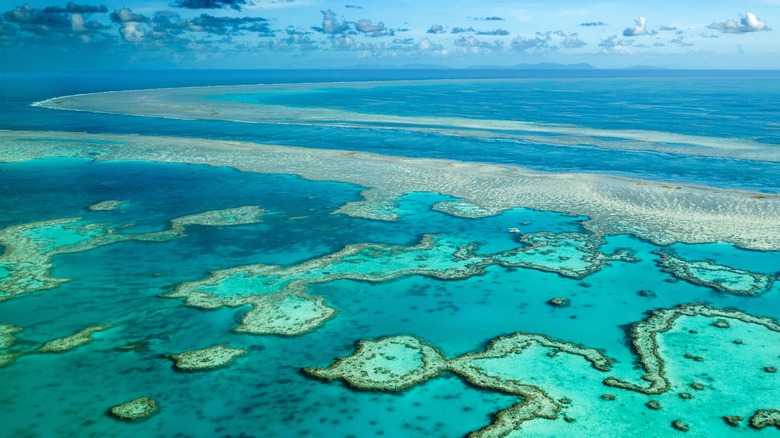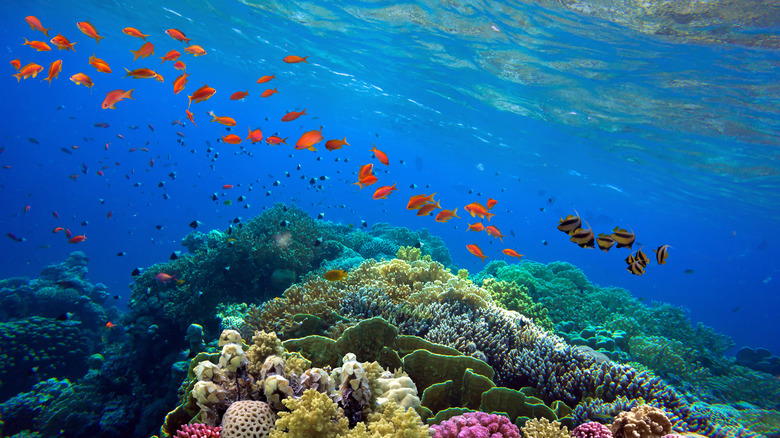The Ideal Time Of Year To Visit Australia's Great Barrier Reef For The Best Visibility
When you travel to the Great Barrier Reef in Australia, you expect to head underwater — or stay aboard a glass-bottom boat — and be able to see all that this natural wonder of the world has to offer. Of course, this destination is most probably on your bucket list for the colorful corals and multitude of marine life you'll be able to see in this part of the world. With 10% of the world's fish species and thousands of coral reefs (per UNESCO) within about 134,000 square miles, you'll have more than enough area to cover with a short trip.
The world's biggest coral reef system is made up of hundreds of types of corals which houses over 1,500 fish species, thousands of mollusk varieties, over 100 jellyfish species, 133 shark and ray varieties, and over 30 whale and dolphin species (per the Great Barrier Reef Marine Park Authority), so you should have plenty to see when you dive, snorkel, or go on a boat tour. Unfortunately, that might not be the case all the time as visibility underwater varies depending on the season. So, if you're heading Down Under to witness firsthand the beauty of the area's corals and marine life, come at the ideal time for viewing.
The best time to see the Great Barrier Reef
It's true that you can visit the Great Barrier Reef any time of the year. But, if you want to see the underwater flora, fauna, and seascape clearly, then vacation between May and October. Considered to be the dry season, these months see an influx of visitors, thanks to low rainfall and an abundance of sunny days.
In contrast, Australia's wet season, from November to April, brings rains that turn the clear waters muddy, per Sightseeing Tours Australia, in addition to tropical cyclones, which makes diving and snorkeling dangerous. You'll also need to wear a stinger wetsuit in the wet season, also known as "stinger season," due to the increased likelihood of getting stung by a box jellyfish. Thankfully, traveling to this UNESCO World Heritage site during the dry season means you'll have fewer worries about jellyfish stings and murky waters, so you can focus on appreciating all the wonders the Great Barrier Reef holds.

